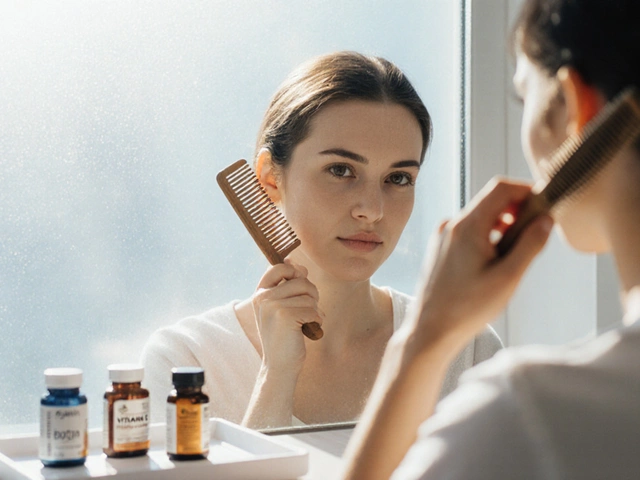ADHD Hardest Age: Why Teens Feel the Struggle Most
If you’ve ever wondered when ADHD becomes a real nightmare, the answer usually points to the teen years. Hormones, school pressure, social drama, and a brain that’s wired for distraction all collide at once. That’s why many parents and young adults call adolescence the "hardest age" for ADHD.
Why Adolescence Feels Like a Storm
During high school, the amount of work and the need to stay organized jump dramatically. Projects, exams, sports, and friendships require quick shifts in focus. For a brain that already jumps from one thought to another, this can feel like a constant uphill battle.
Hormonal changes also play a part. Fluctuating estrogen and testosterone affect mood and impulse control, making it harder to sit still or regulate emotions. Combine that with the desire to fit in, and you get a perfect storm of frustration and low self‑esteem.
Social media adds another layer. Teens with ADHD may scroll endlessly, miss important messages, or post impulsively. The instant feedback loop can boost anxiety and make it tough to stay present in real‑life conversations.
Simple Strategies to Tame the Chaos
1. Chunk tasks – Break homework or projects into 15‑minute bites. Use a timer, finish one chunk, then take a short break. It stops the brain from feeling overwhelmed.
2. Visual schedules – Write down classes, after‑school activities, and study slots on a whiteboard or phone app. Seeing the day laid out helps reduce forgetfulness.
3. Movement breaks – A quick walk, jumping jacks, or a few minutes of yoga resets focus. The brain needs to move, especially when sitting for long periods.
4. Mindful breathing – Teach the teen to pause and take five slow breaths when emotions spike. It’s a cheap, portable tool that works in class, at home, or during a sports game.
5. Ask for help early – Talk to teachers about accommodations, like extra time on tests or a quiet space for assignments. Most schools have policies; you just need to start the conversation.
6. Consistent sleep – Aim for 8‑10 hours each night. Irregular sleep makes ADHD symptoms worse, and teens love staying up late for gaming or chats. Set a bedtime routine and stick to it.
7. Limit screen time before bed – The blue light messes with melatonin, making it harder to fall asleep. Switch off devices at least an hour before bedtime.
Remember, every teen is different. Some will respond well to a digital planner, while others benefit more from a physical notebook. The key is trial and error, not perfection.
Finally, celebrate the wins. Finishing a chapter, remembering a friend's birthday, or staying seated through a class are all achievements. Positive reinforcement builds confidence and reduces the feeling that ADHD is a constant failure.
Adolescence may be the toughest age for ADHD, but with a toolbox of simple habits, clear communication, and a supportive environment, teens can navigate the storm and come out stronger.





